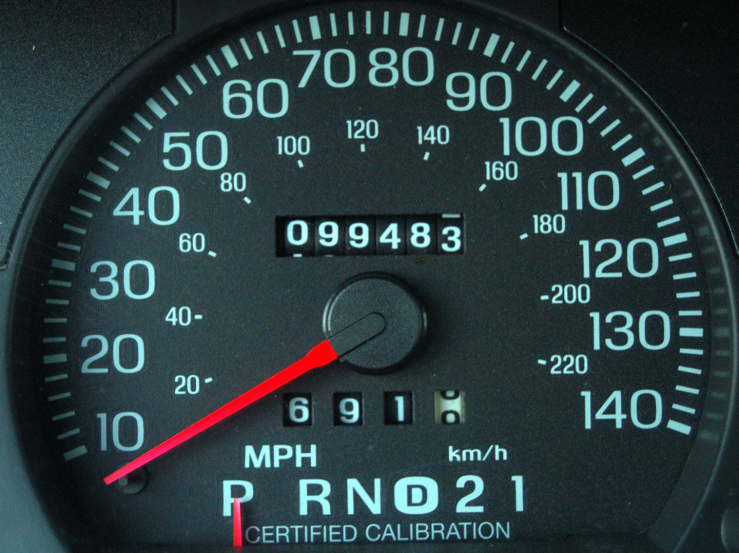
Not every automotive case Allen Stewart P.C. handles is breach of warranty. Odometer fraud is a growing concern in the United States, with more than 450,000 vehicles sold every year with false odometer readings according to the National Highway Traffic Safety Administration. Miles driven on a vehicle determine how much wear and tear the vehicle has withstood and, thusly, how much the vehicle is worth. Odometer tampering obscures that wear and tear, hampering the customers’ ability to make an informed purchasing decision.
The federal Truth in Mileage Act (TIMA) requires motor vehicle sellers provide an odometer disclosure statement at the time of sale or transfer of ownership. This is one of the many forms a car buyer signs when buying a vehicle; it is the seller stating clearly how many miles are on the vehicle and the buyer agreeing. Odometer disclosures are required on all passenger vehicles, pickup trucks, motor homes, motorcycles, and trucks with a Gross Vehicle Weight Rating less than 16,000 pounds that are less than ten years old.
Certain vehicles are exempt from odometer disclosures, including vehicles 20 years or older, vehicles with Gross Vehicle Weight Ratings over 16,000 pounds, snowmobiles, all-terrain vehicles, vehicles that are not self-propelled, or in the case of a title transfer in which at least one of the registered owners is staying the same, except when the title submitted is from out of state.

Odometer disclosure statements must show the odometer at the time and date of transfer. It must also show the year, make and model of the vehicle, the buyer’s name and address, and the signatures of both the buyer and seller. The disclosure must state whether the shown mileage is accurate, inaccurate, or is in excess of the odometer’s mechanical limits.
Previously the limit was vehicles 10 years or older, however the federal rules changed effective Jan. 1, 2021. This rule applies to vehicles year model 2011 or newer. This means a vehicle will not be exempt from odometer disclosure statement requirements until the vehicle is 20 years old. For example, a 2011 model year vehicle won’t be exempt from odometer disclosure until 2031.
Odometer tampering is a serious problem and as such carries serious penalties. A federal odometer fraud conviction can include fines up to $10,000 for each violation, with each altered odometer counting as a separate instance. A conviction also opens the perpetrator to civil lawsuits from anyone they defrauded, with the law allowing damages three times the amount of actual damages or $10,000, whichever is greater. Most importantly anyone found guilty of willfully engaging in odometer fraud can be sentenced to three years in federal prison.
Consumers who inadvertently purchased a vehicle with an inaccurate odometer reading who believe they were intentionally defrauded can seek legal recourse. Texas consumers, for example, can seek redress through the Texas Deceptive Trade Practices Act (DTPA). The act, signed into law in 1973, allows consumers to fight back against false or misleading business practices and get compensation for damages. These malicious practices can include odometer tampering or odometer fraud.
If you believe your vehicle had its odometer tampered with, or you were sold a vehicle under inaccurate pretenses, contact Allen Stewart P.C. today. Our experts are standing by to offer free claims evaluations.
